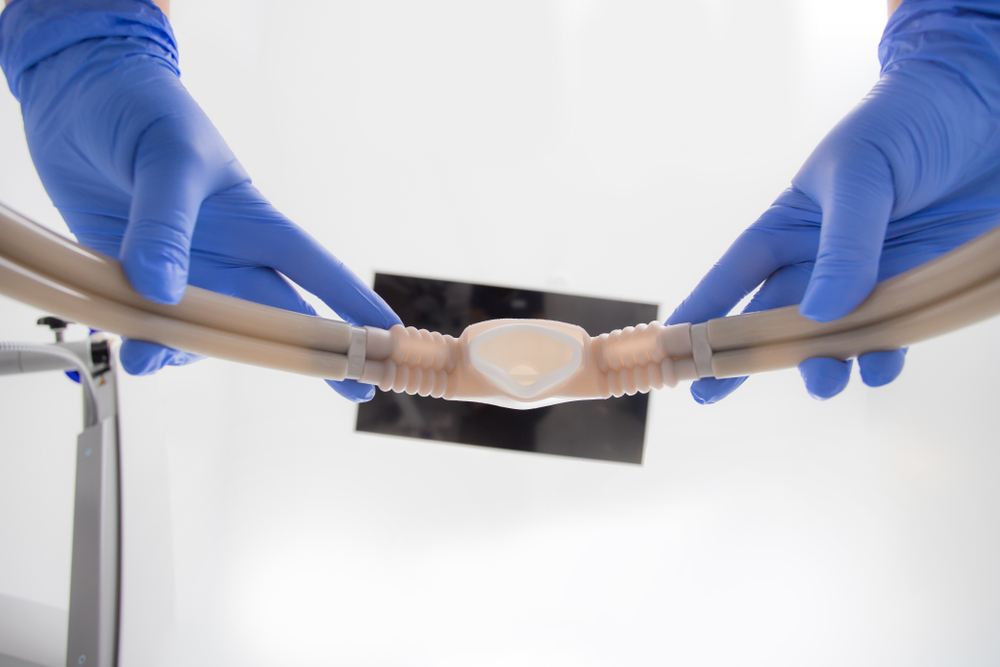Sleep Dentistry: Is It Safe and Suitable for Everyone?

Dental visits can induce anxiety in many patients, making routine check-ups and procedures challenging. To alleviate this, sleep dentistry, also known as dental sedation, has gained popularity as a comforting solution. But is it safe? Who is it suitable for? Today, we will explore the details of sleep dentistry, focusing on its safety and suitability for patients, especially if you’re looking for a dentist in Waterloo.
Sleep dentistry involves various levels of sedation to relax patients during dental procedures, ranging from mild sedatives to general anesthesia. Understanding its safety and suitability is essential for anyone considering this option for their dental care.
What is Sleep Dentistry?
Sleep dentistry refers to using medication to help patients relax during dental procedures. There are different levels of sedation used in sleep dentistry:
Mild Sedation
Patients remain awake but feel relaxed.
Moderate Sedation
Patients may slur their words and have little memory of the procedure.
Deep Sedation
Patients are in a state of semi-consciousness but can be awakened.
General Anesthesia
Patients are completely unconscious.
The level and type of sedation administered will depend on the procedure and the patient’s individual requirements.
Safety of Dental Sedation
When considering sleep dentistry, the first question that often comes to mind is, “Is it safe?” The answer is that dental sedation is typically regarded as safe when provided by a skilled and experienced professional, such as a board-certified Medical Anesthesiologist. However, as with any medical procedure, there are risks associated with sedation.
Who Administers Dental Sedation?
Dental sedation should be administered by a qualified dentist with training in sedation dentistry. In some cases, an anesthesiologist may be involved, especially for deeper levels of sedation.
Monitoring During Sedation
Throughout the process, crucial indicators like pulse rate, blood pressure, and oxygen saturation are meticulously observed to ensure the patient’s well-being. The dental team is also trained to respond to any emergencies that may arise.
Risk Assessment
Before undergoing sedation, patients undergo a thorough evaluation to identify any potential risks. This assessment includes reviewing medical history, current medications, and any allergies.
Suitability for Sleep Dentistry
While sleep dentistry can be a comfortable and anxiety-free experience for many, it’s not suitable for everyone.
Medical History and Medications
Individuals with certain health conditions or those on particular medicines might not be suitable for sedation. It’s crucial to disclose all medical information to the dentist before considering sedation.
Age and Weight
Very young children, elderly patients, or those with significant weight issues may have increased risks associated with sedation.
Anxiety and Phobia Levels
Sleep dentistry is particularly beneficial for those with neurological conditions, dental anxiety, or phobias. It allows them to receive the care they need without the stress and fear associated with dental procedures.
Type of Dental Procedure
The complexity and duration of the dental procedure may also influence the level of sedation. Simple procedures may only require mild sedation, while more complex ones might necessitate deeper sedation.
Types of Sedation Used in Dentistry
There are several types of sedation that can be used in dental procedures, each with its own set of considerations:
Nitrous Oxide (Laughing Gas)
Nitrous oxide, a mild sedative, assists patients in relaxing during their dental procedures. It’s administered through a mask placed over the nose. The effects wear off quickly after removing it.
Oral Sedatives
Oral sedatives in pill form range from mild to moderate in effect and are taken before dental visits.
IV Sedation
Intravenous (IV) sedation offers a more controlled and immediate effect. Because it’s administered directly into the bloodstream, the level of sedation can be adjusted as needed.
General Anesthesia
General anesthesia is used for extensive dental work. It is the only form of sedation where the patient is completely unconscious. It requires specialized equipment and personnel to monitor the patient throughout the procedure.
Choosing the Right Dentist in Waterloo for Sleep Dentistry
When looking for a dentist in Waterloo who offers sleep dentistry, there are several factors to consider:
Credentials and Experience
Ensure the dentist and associated staff have the proper credentials and experience in administering sedation. Don’t hesitate to ask about their training and the number of sedation procedures they’ve performed.
Sedation Options
Ask about the types of sedation offered, which one would be best suited for your needs, and the procedure you’re undergoing.
Safety Protocols
Inquire about the safety protocols in place, how they monitor patients during sedation, and their emergency response procedures.
Consultation and Assessment
A good dentist will offer a thorough consultation and assessment to determine if you’re a suitable candidate for sleep dentistry. They should also provide clear instructions on preparing for sedation and what to expect during and after the procedure.
Sedation Dentistry at Waterloo Dentistry
At Waterloo dentistry, patients can expect a comprehensive approach to sedation dentistry. The dental team is dedicated to ensuring the safety and comfort of every patient. They provide personalized care, taking into consideration individual medical histories, anxiety levels, and dental needs.
Sleep dentistry can provide a safe and effective method for receiving dental treatment, especially for those with neurological conditions or unique health circumstances, anxiety, or fear of dental procedures. However, it’s not suitable for everyone, and careful consideration must be given to each patient’s unique situation. If you’re considering sedation dentistry, consult with your dentist in Waterloo to discuss your options.
By understanding the nuances of sleep dentistry and choosing the right dental professional, you can enjoy a stress-free and safe dental experience.
Contact Ashraf Dentistry today for more information on sleep dentistry!
